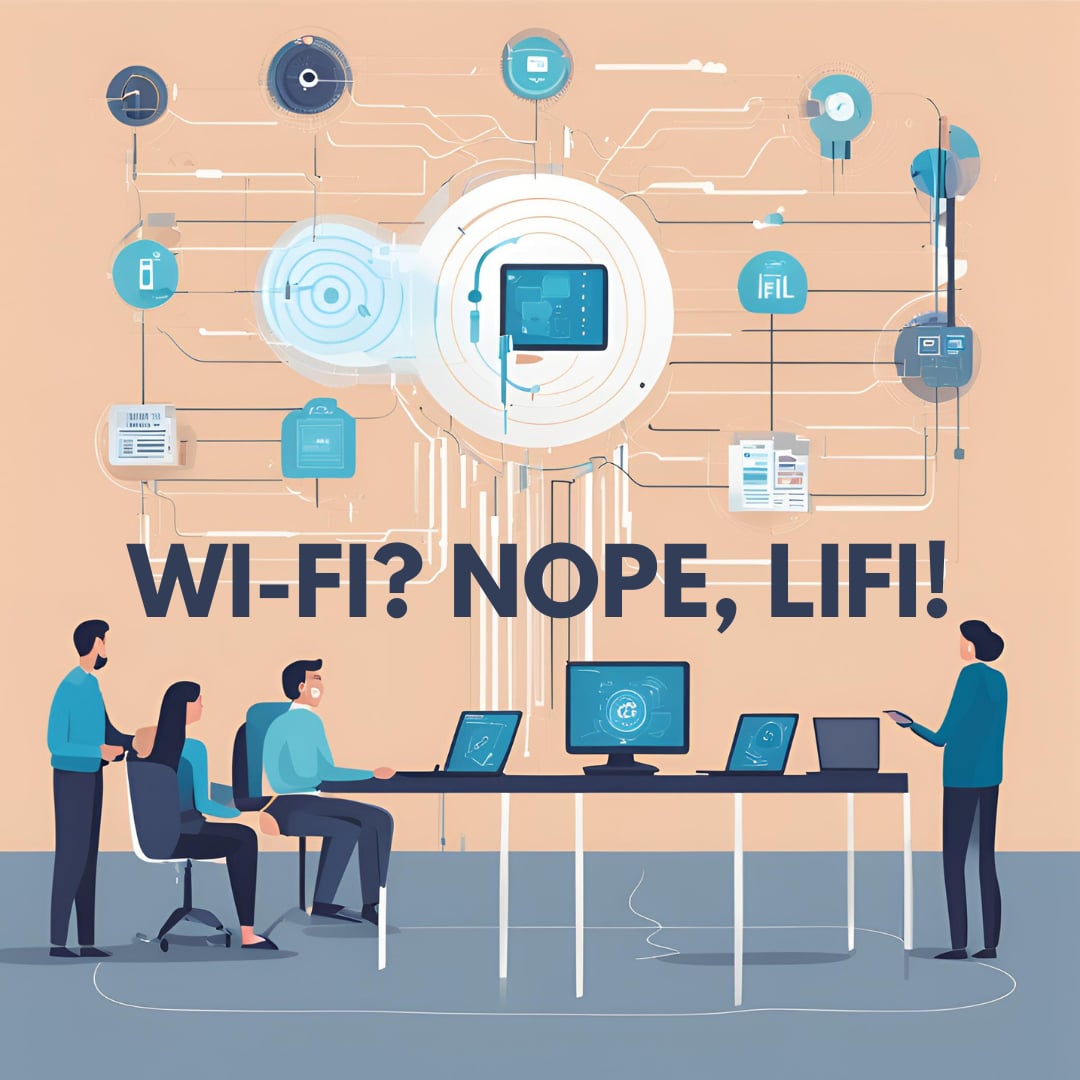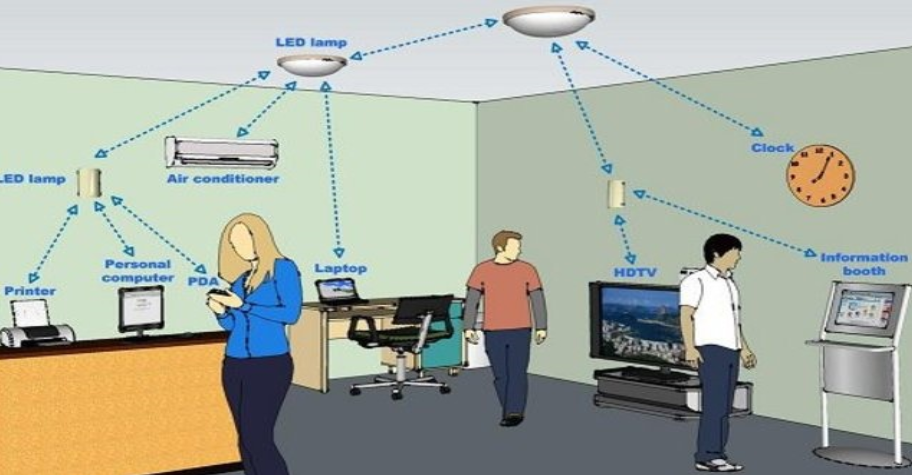
LiFi, sounds more or less like Wi-Fi right? Our daily drive; more like our best friend. Can you even imagine spending one entire day without being connected to the internet? No way, we live in the 21st century come on. Binging shows, watching livestreams, downloading games, gathering knowledge, even education and learning requires a connection to the internet nowadays considering how modern and evolved we are. Technology has been evolving on the daily, evolving faster than ever. And this very progress has led to the formulation of LiFi.
LiFi, which stands for Light Fidelity, is basically a method of communication using visible light instead of radio waves which is used by Wi-Fi. Sounds impossible? Well somewhat because it is still in the very early stages of development. But the scopes with it are limitless nonetheless. Imagine flicking your room lights on and voila! You have direct access to the internet on all your devices. Spooky right. Furthermore, LiFi is capable of delivering speeds over 100 gigabits per second in front of which 5G internet sounds like a joke!
As it is still in the early stages of its development, there has not been a very wide commercial usage of it. However, here's the basics of LiFi and how it works :
- a) LED light bulbs act as a signal transmitter. It flickers the light on and off rapidly, inconspicuous to the naked eye.
b) A LiFi reciever on your device captures the rapid on and off pulse and decodes the signal.
You might even say it is sort of analogous to morse code but instead of dots and dashes, we use rapid pulses of electricity, or in this scenario, we use visible light waves.

The above figure shows a demonstration on how LiFi can be accommodated into our day to day lives in an office.
But what makes LiFi revolutionary though? Well, very first and foremost. Security. You do not need a superman to protect your data from being accessed by a third party anymore. LiFi entirely depends on LED lights and someone who does not have access to the LED in your room certainly cannot access your private connection or the data that you transmit over it. This prevents the risks of DDoS attack and other forms of dictionary attacks as well.
Additionally, LiFi is much more compatible with our current infrastructure. If you remember your first time setting up your Wi-Fi connection, I can say that it was not easy for you. It was not easy for anyone, having to arrange a place to set your router so that it is able to provide wireless connectivity throughout your entire house, ignoring managing all the cables that comes with it. Literally a hectic process. Now, imagine replacing that big, old, grumpy router with literally a LED bulb. You have more light in your room which will obviously make your room a whole lot brighter as well as act like a router. The modern houses are built with LED lights, making it cost-effective and easy to adopt. Not to mention, you can let greater number of guests use your internet connection. Unlike Wi-Fi routers which only allow a certain number of devices to connect to them, as LiFi uses the visible spectrum, it is able to offer a greater bandwidth thus also preventing any traffic congestion.
There is also a growing population who feels as if the radio waves from your Wi-Fi router is enough to kill you or at least cause cancer? Is that information verified or are there any scientific evidences? No, not to this day but in order to also cater to their concern, LEDs or light waves do not cause any sort of illnesses or even cancer. So, some people may also consider it safer than radio waves, thus making it apparently safer than Wi-Fi.
But nothing comes without its challenges, and so does LiFi. Due to the inconsistent intensity of light at certain places as well as not being able to provide enough coverage, it has been impossible to accommodate LiFi into the day to day lives of our modern society. Not enough LED sources in various places, especially rural areas, is the main cause for LiFi still not being a viable alternative to Wi-Fi. But does that mean that it has hit a dead-end? Certainly not! The next time you switch on the light in your room, you might as well be paving a way into the future of wireless communication with this paradigm shifting discovery but till then, rack your brains as we do the same and who knows, you might be the pioneer of LiFi into the life of the new generation!